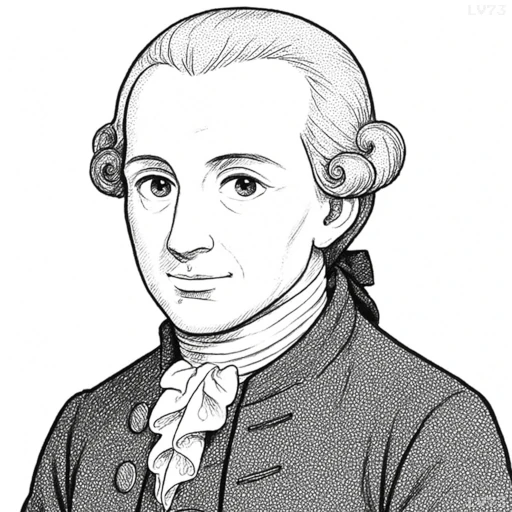“Seek not the favor of the multitude; it is seldom got by honest and lawful means. But seek the testimony of few; and number not voices, but weigh them.”

- April 22, 1724 – February 12, 1804
- Born in Germany (East Prussia)
- Philosopher
table of contents
Quote
“Seek not the favor of the multitude; it is seldom got by honest and lawful means. But seek the testimony of few; and number not voices, but weigh them.”
Explanation
In this quote, Immanuel Kant advises against seeking the approval or favor of the majority, suggesting that such approval is often achieved through dishonesty or by compromising moral principles. He emphasizes the importance of seeking genuine, thoughtful testimony from a few individuals whose opinions are based on sound reasoning rather than the popular opinion of the masses. This speaks to Kant’s belief in the value of individual judgment and rational thought, urging people to be guided by ethical principles rather than the transient and sometimes misguided views of the crowd. It also suggests that when it comes to moral and intellectual matters, the quality of the opinion is far more important than the quantity.
In modern times, this idea resonates with the challenges of public opinion and the influence of social media, where popularity and the number of voices can often overshadow the merit of an idea. For example, in political discourse, decisions are frequently swayed by the loudest voices or the most widespread beliefs, even if they are not well-grounded in truth or morality. Kant’s view encourages us to critically assess the validity of ideas based on their substance, rather than being swayed by popular opinion. This is particularly important in areas like ethical decision-making, where true moral guidance often requires a deep, thoughtful analysis that may be contrary to what the majority believes.
Historically, Kant’s perspective reflects the Enlightenment values of individual autonomy and rational inquiry. During a time when societal structures were often dominated by tradition and unquestioned authority, Kant’s emphasis on the rational individual making decisions based on moral principles was revolutionary. His skepticism toward the influence of the majority can be seen as a challenge to the status quo, urging people to resist conforming to what is popular and instead pursue a more thoughtful, reasoned approach to action. Today, his ideas continue to inform debates in democracy, ethics, and leadership, where the question of how to balance the wisdom of the few with the desires of the many remains a relevant issue.
Would you like to share your impressions or related stories about this quote in the comments section?

